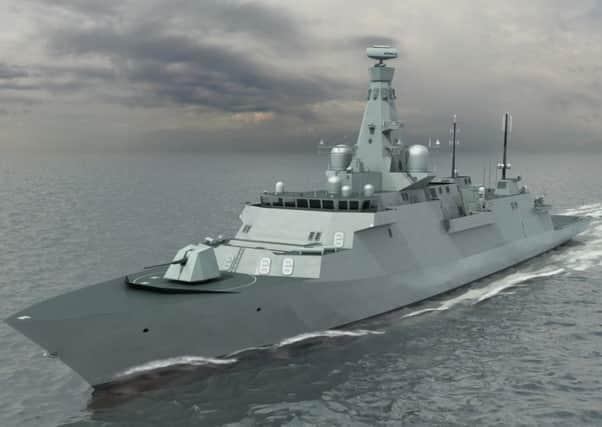Leader comment: Clyde could gain from foreign orders


He says the nation would be better served by harnessing the “renaissance” in UK ship building currently under way by having yards across the country compete for work on new ships, new work could then be carried out at numerous yards, and the various parts could then be taken to a lead yard and assembled, as indeed happened with the new aircraft carriers which were assembled at Rosyth.
The competition for work would drive down costs, having the ships built more quickly would drive down costs, and having ships built more quickly would mean the Royal Navy could stop spending large sums maintaining and running old vessels which are beyond efficient service. It is hard to argue with the economic case.
Advertisement
Hide AdAdvertisement
Hide AdBut does this mean that less work will in future be coming to the Clyde, particularly the new Type 31 frigates it had hoped for, and should that be fought? There are a number of factors that have to be kept in mind.
There are already other yards in the UK that are viable competitors to the Clyde.
Appledore shipyard in Devon operated by Babcock International Group is already building warships – but for the Irish navy. It recently won a £43.1 million contract to build a fourth ship. Babcock has announced the vessel will secure work for 280 employees. Work will start on the ship this summer, with a completion date of summer 2018.
Cammell Laird in Birkenhead has been selected as the preferred bidder to build the state-of-the-art polar research ship the RSS Sir David Attenborough which is a big and technologically complex vessel.
The Clyde has already got the contract to build the Royal Navy’s entire fleet of Type 26 Global Combat Ships and that will keep two yards busy until the early 2030s.
And the Clyde will be able to compete for the Type 31s from a real position of strength as it has the best and most up-to-date skills and knowledge and has proven it can deliver. It will be up to the other yards to beat them, and that will not be easy. Babcock at Rosyth would also be a strong contender. What Sir John’s report should do is impress upon the government the need to get the Type 31 project under way as soon as possible.
But perhaps the part of Sir John’s report that could have the most impact is getting the MOD to wake up to the prospect of building military ships for export.
Sir John says that ships should in future be designed and tested for foreign markets, and it seems remiss that they currently are not. That could mean a significant increase in the number of ships being built in the UK and have benefits for the entire industry.
So now the government needs to bring forward its national strategy as soon as possible and get on with ship building.